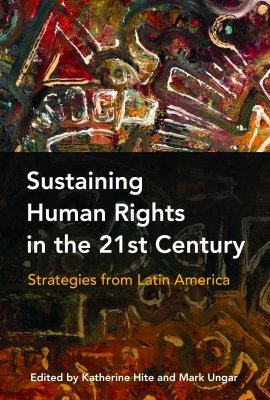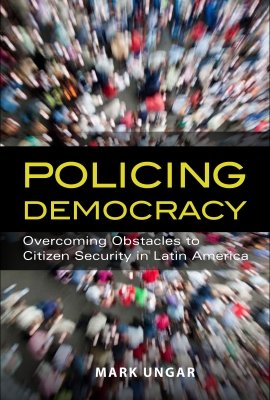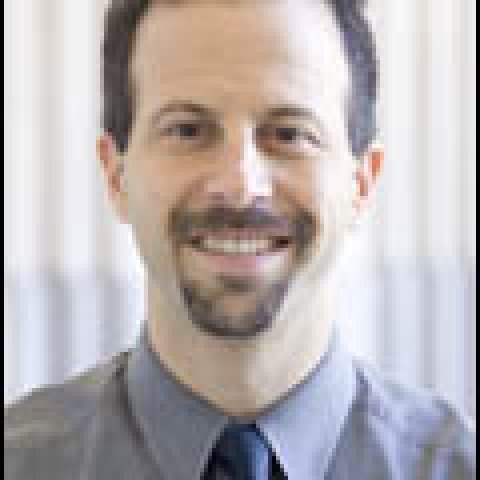Mark Ungar
Former Fellow
Professional Affiliation
Associate Professor, Brooklyn College- City University of New York
Expert Bio
My interest in police reform began when I worked in 1990 with a grassroots human rights group formed to combat police abuse in the shantytowns of Caracas, Venezuela. Beyond the challenge of responding to specific killings was to understand why impunity and violence were thriving in one of the world's wealthiest and most stable democracies. This contradiction indicated a potential time bomb in the democratization that the rest of Latin America was undergoing. I pursued such questions as a doctoral student at Columbia University and in my dissertation on judicial reform in Venezuela, Argentina, and Bolivia. The book based on this fieldwork examined attempts to strengthen state agencies, the courts, oversight bodies, lawmaking, and law enforcement in Latin America's new democracies. I also worked on these issues on a policy board of Amnesty International and as an advisor to the United Nations, the Lawyers Committee for Human Rights, and other organizations. During fact-finding missions to the Balkans and the Middle East, I also began to see parallels with other democratizing countries. Initial efforts to re-build a rule of law in Bosnia, for example, centered on forming independent courts, an effective police, and institutional oversight. As mounting crime in the 1990s made Latin America the world's most dangerous region, I began to analyze its destructive impact on democracy and develop feasible means to reverse it. I wrote about how new neighborhood justice forums were often turned into instruments of vigilantism, for example, and how the adoption of "zero tolerance" measures deepened a dangerously false division between civil rights and public order. Incorporation of the police's perspective has been central to this work as well; accompanying police patrols in poor urban zones of Honduras, for example, helped me formulate community policing proposals that I brought to a 2003 meeting in the Persian Gulf on police-citizen relations in post-conflict societies. Visiting prisons throughout Latin America also turned my attention toward the alarming increase in deadly violence, inhumane overcrowding, and systemic denial of due process in nearly every country's penitentiary system. Based on this documentation, I received a Ford Foundation grant to bring together officials and activists from around Latin America to develop practical ways to improve prison conditions and administration. Renewed efforts to tackle chronic police ineffectiveness in Argentina, finally, have given me the opportunity to map out a broad-based assessment and police reform package. In early 2004 I began working with Argentina's government to overhaul training curricula, internal affairs management, and standards for promotion and evaluation for the federal police. This work will come together in my project at the Woodrow Wilson Center, where I will develop proposals for overcoming obstacles to change in six Latin American countries. Police reform is not only critical to providing basic citizen security, but reflects the difficult balance between rights and order that democracies throughout the world must learn to strike.
Education
B.A. (1987) Wesleyan University; M.A. (1991) International Affairs, Columbia University; Ph.D. (1997) Political Science, Columbia University
Subjects
Argentina,Democratization
Experience
- Associate Professor of Political Science, Brooklyn College
- Chair, Graduate Studies, Department of Political Science
- Associate Editor, World Police Encyclopedia
Expertise
Latin America; judicial and police reform
Wilson Center Project
"Creating Change: Citizen Security Reform in Latin America"
Project Summary
This project explains why urgently needed police and security reform in Latin America is being undermined. It will first catalogue and analyze the region's three principle sets of such reform: police force re-structuring, new penal codes, and community policing. It will then describe political and institutional obstruction of such change in six countries: Honduras, Venezuela, Perú, Bolivia, Argentina, and Uruguay. Finally, it will propose specific ways to overcome these obstacles, mainly through de-politicization, stronger oversight, more practical proposals, and international involvement. By forming concrete recommendations on a highly-politicized issue, the project will help highlight weaknesses in Latin American democracy and contribute ideas for security reform efforts in other worlds regions, which are facing similar impediments.
Major Publications
- Elusive Reform: Democracy and the Rule of Law in Latin America, Lynne Rienner Publishers, 2002
- Violence and Politics: Globalization's Paradox (Routledge, 2001)
- "Prisons and Politics in Latin America," Human Rights Quarterly, Vol. 25, No. 4, November 2003
Insight & Analysis by Mark Ungar
- Article
- Democracy
The Rot Within: Security and Corruption in Latin America

- Book
- Conflict Resolution and Peacebuilding
Sustaining Human Rights in the Twenty-First Century: Strategies from Latin America

- Past event
- Democracy
Policing Democracy: Overcoming Obstacles to Citizen Security Reform in Latin America

- Book
- Democracy
Policing Democracy: Overcoming Obstacles to Citizen Security in Latin America

- Video
Crime Democracy and Latin America

- Video
Crime Democracy and Latin America


